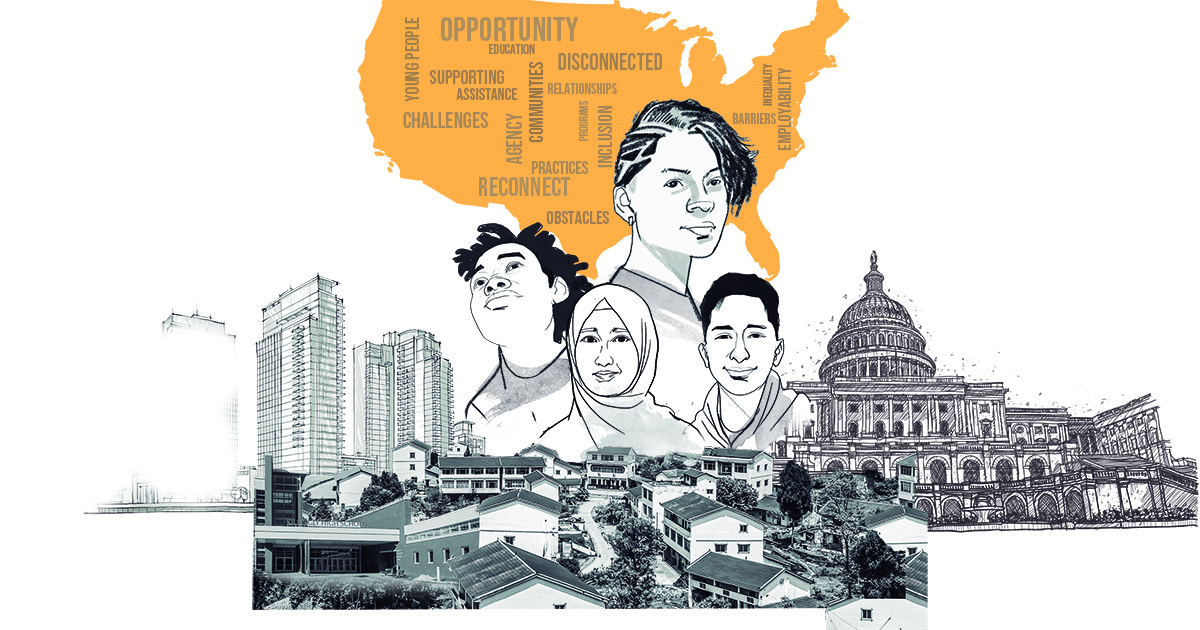A National Scan of Policies, Practices, and Systems Affecting Young People

In 2021, approximately five million young people in the United States were not in school or working. This group of young people transitioning to adulthood, roughly ages 16 to 24, are often referred to as “opportunity youth” and sometimes “disconnected youth.” Young people from low-income families and from communities of color—such as Native Americans, Blacks, and Latinos—experience higher rates of disconnection, as they face significant obstacles related to poverty and racial inequality. Research shows that disconnection from school and work during these transformative years can have negative, long-term consequences on a range of outcomes—from earnings to incarceration to homeownership to physical and mental well-being—that result in significant costs for these individuals, their communities, and society at large.
For most young people, disconnection from school or work is not a steady state. Some people find ways to reconnect as they age, while others remain persistently disconnected over early adulthood. Those who are disconnected for long periods and those who become less connected as they get older are also those who face more barriers to success, including poverty, limited education, and involvement with the criminal legal system. Community-based programs are an important source of support for young people to reconnect to school and work. They may help young people work toward a high school credential, connect to postsecondary education or training, earn an occupational credential, gain employability skills and work experience, and advance in the labor market. But these programs often tend to reach people who are more active in their efforts to reengage in school, training, or employment, whether on their own or with a push from family or friends. Those who are reluctant to seek help—due to past negative experiences in their lives, difficulties in navigating systems, or the hurdles of the program requirements—often fall through the cracks.
Dalio Education’s Connecticut Opportunity Project (CTOP) partnered with MDRC to conduct an evidence-focused scan of the landscape of programs and practices that are relevant to this specific subset of young people who are furthest from opportunities in their communities: (1) young people who are disconnected from education, training, or employment and are reluctant to actively seek help in reconnecting; and (2) young people reconnecting to education and employment after incarceration and past or current disconnection from education, training, or employment.







